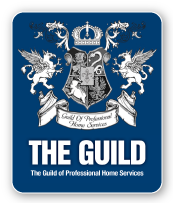The technology in today's vehicles has become so sophisticated, many drivers are unaware of how their vehicle's systems actually work. Although it is not important for drivers to completely understand these systems, it is important to have a basic understanding of the systems and components that have the greatest impact on safety, dependability and performance. Regular maintenance is the key to continued performance and safety, as well as protection from costly repairs.
Below is a list of some of the important systems you should have serviced and inspected on a regular basis. Always refer to your vehicle's owner's manual for detailed recommended service intervals.
Brakes: Obviously, brakes are an important safety device. You should have your brakes inspected as part of your routine service. Any sign of poor braking performance should be addressed immediately. We recommend having your brakes checked every 20,000 Km. or once a year, whichever comes first. Also keep in mind, that brake fluid is just like every other fluid in your car and needs to be changed on a consistent basis. We recommend every 45,000 Km.
Cooling System: Have your cooling system checked as part of your maintenance program. Problems with your cooling system could lead to excessive engine wear. If cooling system problems are not addressed, it will lead to expensive repairs. Coolant should be flushed and changed every 40,000 Km.
Emission Control Systems: The emission control system is currently being examined by the Drive Clean Program. A malfunctioning emission control system can also lead to poor fuel economy and performance.
Filters: All the filters on your vehicle should be replaced as part of a regular service regimen. Air and fuel filters should be examined on a regular basis and changed as required. We examine your air filter on every visit as part of our regular inspection.
Fluids: Oil should be changed every 5000 km or 3 months, which ever comes first. You should also check engine coolant, transmission and power steering fluid, as well as brake fluid. We can customize a maintenance plan specific to your vehicle. For more detail on maintenance schedules, click here.
Suspension: Your suspension system not only absorbs bumps, but also ensures proper tire-to-road contact. Worn suspension components compromise steering control and may lead to premature tire wear.
Tires: Tire pressure should be checked regularly. Proper tire inflation is not only a fundamental component of safe driving, but also ensures optimum tire life. Damaged tires should be replaced immediately. We inspect your tires and tire pressure on every visit.
Spark Plugs: It is essential to replace spark plugs in accordance to the intervals specified in your owner's manual. Worn spark plugs will result in poor engine performance and may cause excessive emission outputs.
Windshield Wipers and Lights: Inspect your windshield wipers regularly. Worn windshield wiper blades will cause streaking that can impair visibility. Periodically walk around your vehicle to ensure all lights are working. This includes brake, tail, signal and headlights.
The key to owning a reliable and safe operating vehicle is regular maintenance. The minor expense associated with regular service is by far, money well spent. A lack of maintenance will almost always ensure costly break downs. If you notice any problems with your vehicle, have a professional examine it. Small problems caught in time, could eliminate major and expensive repairs.
 home
home
 gallery
gallery
 contact
contact
 Car Care Tips
Car Care Tips
 brantford Homemove
brantford Homemove





